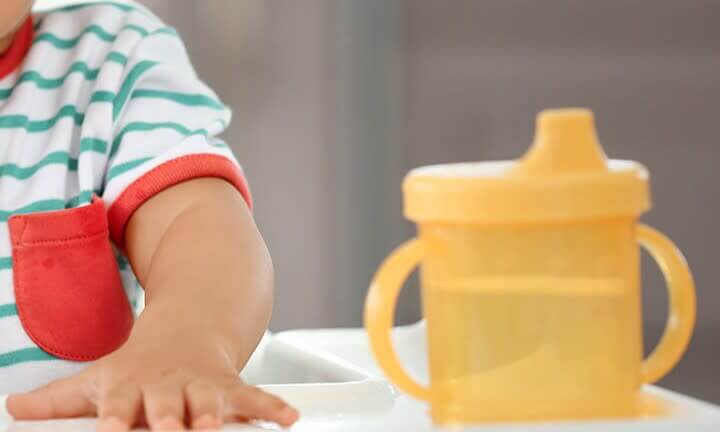Drinking water is essential for everyone, isn’t it? Well, it turns out that babies get all the hydration they need from breast milk or formula in the early months.
Discover when it’s time to start giving your baby water, and why it’s important not to baby drinking water until he starts eating solid foods. Plus, get some answers to some common questions about safely giving Water to Babies when the time is right.
At what age should your child be given water?
Water is not recommended for your baby in the first six months of a baby’s life until he starts eating solid food. Your baby will get all the water he needs from breast milk (which is actually 80% water) or formula. After your baby is 6 months old, you can start offering a little water.
At what age should your child be given water?
For babies under 6 months of age, drinking water can lead to diarrhea and even malnutrition.
With breastfeeding, introducing water can reduce or stop a baby’s feeding, leading to malnutrition. Less frequent feeding can in turn lead to a decrease in breast milk supply
How and when should you give water to your child?
The best way to offer water to your baby (aged 6 months or older) is to give him a small amount in a drinking glass. Do not force him to drink water if he refuses.
Your child’s need for fluids will increase when he starts eating foods
For this reason, the time to start giving solid foods is also a good time to introduce water gradually. Giving baby water gradually also gives your baby a chance to get used to the normal flavor of water.
Drinking water also helps develop healthy habits for your child. It is not recommended to give your child juice as it may cause a craving for sweetened drinks, which may lead to weight gain or obesity later on.
Can powdered milk be mixed with water?
It is okay to mix powdered milk with water. Just be careful to follow the manufacturer’s instructions on how much water to add.
The dangerous thing is to add more water to the formula. Diluting the formula or giving your baby water in addition to formula can lead to a condition called water intoxication
Diluting infant formula beyond the manufacturer’s instructions reduces the nutrients your child gets. This can slow growth, cause electrolyte imbalances, and possibly cause seizures.
Should tap water be boiled for children?
The tap water may not be clean enough for your child. Check with your local health department if you’re not sure about the quality of the tap water in your home.
If the water is not safe, you can use bottled water instead, boil tap water to mix it with infant formula or give it to your baby once he reaches 6 months of age.
To boil tap water, boil cold water for 1 minute and set aside to cool to room temperature for 30 minutes before using it. It is a good idea to test the water on your wrist to make sure it is at room temperature before giving it to your child.
Should water be given to a dehydrated child?
Your child may become dehydrated if he has a fever, vomiting, diarrhea, or certain other reasons.
Some signs of dehydration may include:
• Dry mouth
• Less Wet Diapers
• drowsiness
• Irritability
• A soft spot on the forehead
If you suspect your little one is dehydrated, don’t give him water. The best liquid to keep your baby hydrated is breast milk or formula.
Contact your child’s doctor immediately if you suspect your child is dehydrated. Your provider may suggest rehydration lotion, drops, vitamins, or minerals in syrup or medication form to rehydrate your child
Should you give your baby water while breastfeeding on hot days?
Your baby doesn’t need water before 6 months of age, even if it’s a hot day and/or you live in a hot climate. The best option would be to keep your baby hydrated through breast milk or formula.
What is water poisoning in children?
Water intoxication, also called hyponatremia, is a condition in which the level of sodium in the blood becomes abnormally low. Drinking a lot of water can cause this condition.
A child given water under 6 months of age may be at risk of developing this condition.
Symptoms of hyponatremia can include:
• Nausea/vomiting
• Headache
• confusion
• drowsiness
• Irritation
• Spells
Water intoxication requires emergency medical attention, and treatment may include intravenous electrolytes or medication. Call your child’s doctor if you notice any of the symptoms listed above, or if you have any concerns about water intoxication.
Although giving water to infants may seem harmless, it is not recommended until your baby is 6 months old. Your baby gets all the nutrients and hydration he needs from breast milk or formula.

